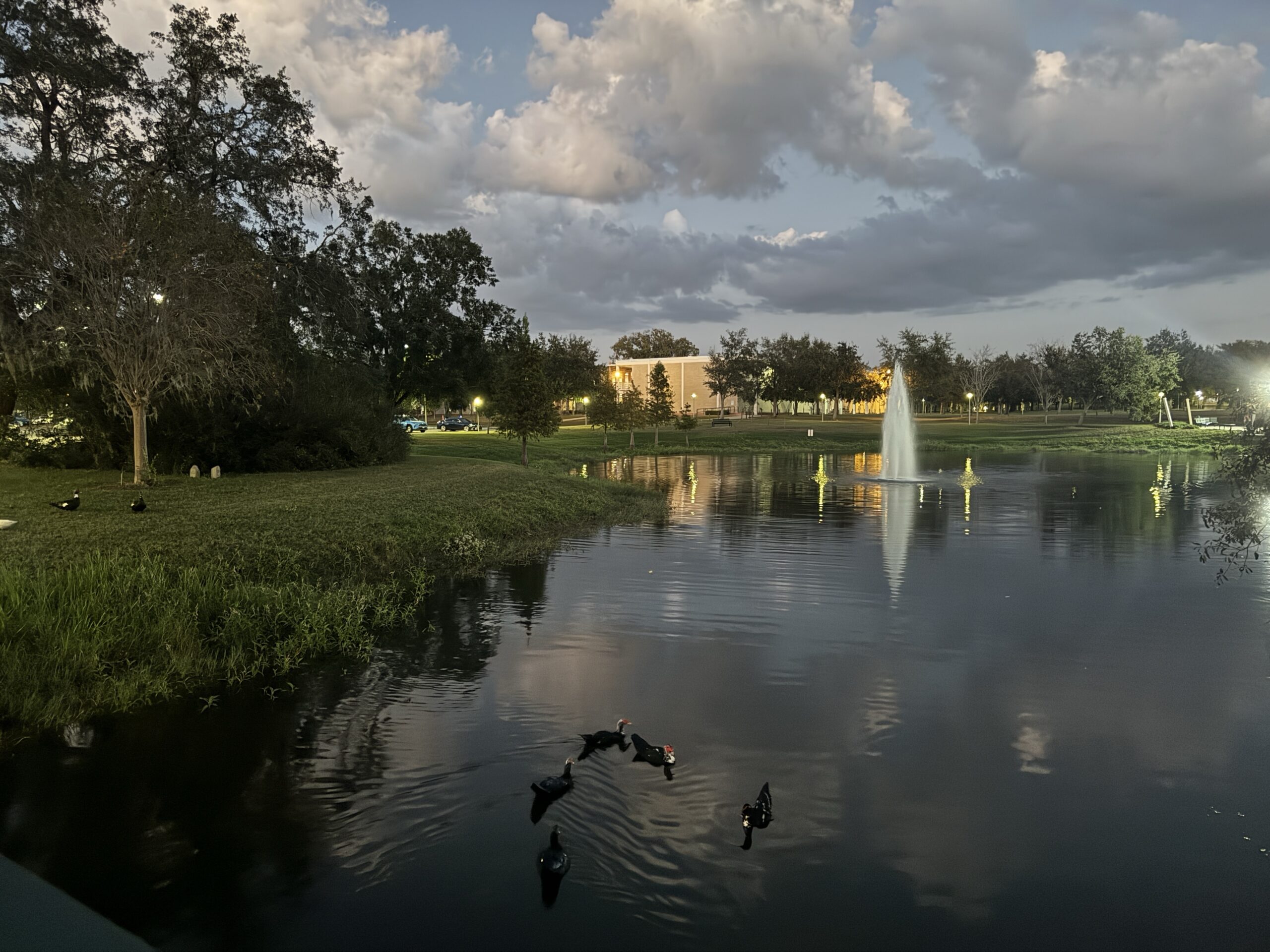USF’s fishing community finds a home at Simmons Park

Nestled behind the Fine Arts building, directly across from Juniper-Poplar Hall, is USF’s Simmons Park.
The park serves as a landing spot for campus wildlife — along with student fishing enthusiasts.
Addison Hilyard, the staff adviser for the Fishing Club at USF, said the lake is a good starting place for beginners. Hilyard, who has been with the club since late 2021, said he was told about the spot by club members.
“The people I met in the club encouraged me to come out and try fishing [there],” Hilyard said. “There’s a few species in the lake at Simmons Park that are pretty good, especially for a lot of beginners who are just getting into fishing.”
Simmons Park is similar to other on-campus lakes, with regulations preventing people from swimming. However, no USF regulations prevent students from fishing in them.
Aaron Nichols, a spokesperson for USF Facilities, said that the only rules students must be mindful of when fishing on campus are statewide. Florida state regulations require a recreational fishing license for any “attempt to take fish.”
Just last week, around 67% of Floridians voted to enshrine hunting and fishing rights in the state constitution.
Related: Donald Trump’s win prompts shock, relief from USF students
Jarrod Hemann, president of the Fishing Club at USF, said finding a good fishing spot can often be the most daunting part of getting started.
Hemann, who grew up fishing, said he’s fished at every lake within a five-mile radius of campus.
“Probably the biggest aspect of fishing is having spots that not everyone goes to,” Hemann said. “It’s really hard because there’s so many people in Tampa. Every body of water, you get out there and you’re probably going to see someone fishing.”
While Hilyard said the lake at Simmons Park can be a good choice for beginners or students living on campus, there are some drawbacks to fishing there.
“A lot of fish there are a little bit easier to catch,” Hilyard said. “It’s really accessible for them [the students]. But once you progress beyond that, there’s not a lot of opportunities here on campus to really hone those skills.”
Hilyard said some species, such as smallmouth and largemouth bass, stay relatively small due to the water quality within the lake. He said improving the quality of fishing spots would be a great way to make the sport easier to practice on campus.
“If the university wanted to make this a little bit more accessible to people, improve the water quality in the pond at JP,” Hilyard said.
Castor Beach, an on-campus body of water across from Castor Hall, prohibits students from swimming in the lake partly because of unregulated water quality.
The lake catches runoff stormwater, which could make it a host for potential diseases. The body of water also experiences limited movement, making bacteria overgrowth another possible risk.
Related: Why can’t you swim at USF’s Castor Beach? Alligators and dirty water.
Hilyard said improving water quality would make for an overall better fishing spot for students.
“Once you do that, it’d be more accessible for first-time fishermen and students to catch those nice-sized fish here on campus without having to find transportation to go off campus,” he said.
Related: USF’s Riverfront Park, Botanical Gardens temporarily closed following Milton
Hemann, who took over the presidential role last year, has since made the club’s growth and new member outreach a priority. He said “a good chunk” of the club’s new members are just now discovering the sport.
“I’ve been trying to turn it into something that connects every fisherman,” Hemann said.
This story has been updated to clarify swimming regulations.







